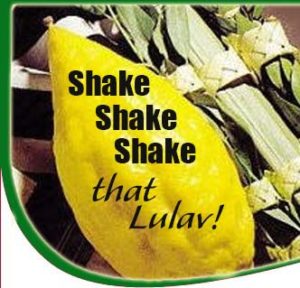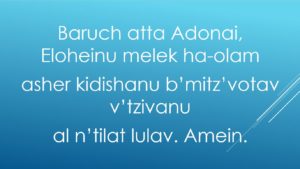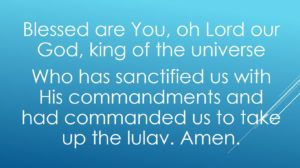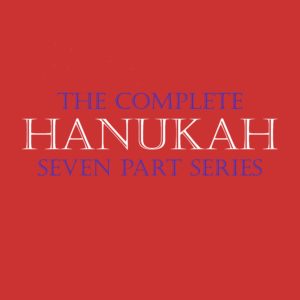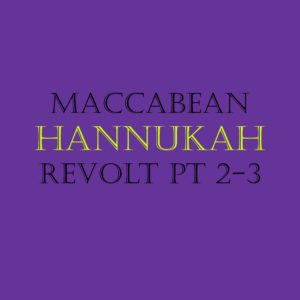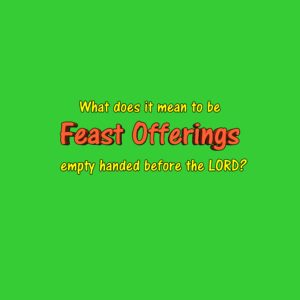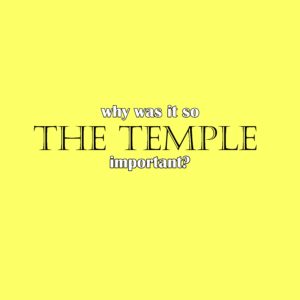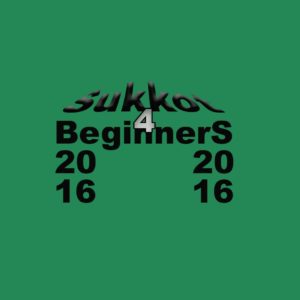Episode 76: Yom Kippur—Cleaning God’s House!
This is the second of three special teachings on the Fall Festivals of the Bible that will all come out this week before they air on the radio because it’s important to understand the festivals before they happen so that we can celebrate them. Do you understand the reason God commanded that Yom Kippur be celebrated forever? Do you understand what all those sacrifices were about, from the ancient Near Eastern perspective of the cleansing power of blood and sacred spaces? Through my own stories and parables, I will explain why Yom Kippur made the Temple habitable for God and the effect of sin on His Tabernacle, Temple, and even the Temple of Living Stones we are part of today.
If you can’t see the podcast player, click here.
Hi! I’m Miss Tyler and welcome to another episode of Context for Kids where I teach you guys stuff most adults don’t even know. If this is your first time hearing or if you have missed anything, you can find all the episodes archived at contextforkids.podbean.com, which has them downloadable, or at contextforkids.com, where I have transcripts for readers or on my Context for Kids YouTube channel. Parents, any scripture this week will be from the Miss Tyler Version (the MTV) which is the Christian Standard Bible reworded a bit to make it easier for kids to understand the meaning.
Have you guys ever heard of Yom Kippur? It means the day (yom) of atonements or coverings (kippurim) and you might be saying, “Um yeah…okay…but what the heck does that even mean? It’s just as confusing in English as it is in Hebrew! And I agree, it is totally confusing but that’s why I am going to teach you about how to clean up a Temple! WHATTT??? Don’t you just get brooms and windex and furniture polish and maybe a vacuum cleaner like at home or at church or in the synagogue? Well, that works great with the kind of dirt that we can see in our homes but on Yom Kippur, the High Priest was dealing with the kind of terrible mess that no one but God could see, a mess that got worse and worse every time someone did something terrible. And that might sound like crazy talk to you but I am going to tell you some stories to help you to understand why Yom Kippur is so important, and why it is called the holiest day of the entire year.
Have you ever heard the word pollution? I bet you have. Pollution is a big part of the reason why we recycle, and why companies aren’t allowed to dump terrible things in the rivers, or lakes, or oceans anymore. And some companies have those big smokestacks that pour out black smoke, right? Well, when I was born, oh man, it was really bad but when I was about 1 ½ years old, the President created the EPA and a lot of cities where you couldn’t even see the sky and the buildings were black from the gunk in the air, got cleaned up. About twenty years before I was born, it was really bad. I will even include a link in the transcript of pictures of what Pittsburgh looked like when my parents, grandparents and great-grandparents were growing up there. But it wasn’t until about forty years ago that it really started looking good because they stopped burning untreated coal. They cleaned up the water, cleaned up the air, and cleaned up the soil. And when that happened, people got healthier too. Just imagine not being able to see the sky because it looks dark gray all the time!
Now, I want you to imagine if all that coal dust and burnt coal fumes was invisible, and the buildings still looked clean and the sky still looked blue and the water looked clear and the soil looked okay. Is everything okay just because it looks okay? Nope! Even though it’s invisible, all the poison would be in the air you breathed, the soil your food grows in, the water you drink and where the fish live. So, the poison from all of that pollution would still be inside of you, making you sick, making it hard to breathe, and all sorts of bad things. I want you to think about sin like that. The bad things people do may not be visible for everyone to see, but every bad act polluted God’s Tabernacle. And if God’s Tabernacle became too polluted, He wouldn’t want to live there anymore. At first, the pollution was just in the outer buildings surrounding the Temple, and then it came into the Court of Israel, where people waited to offer sacrifices to God if they had done something wrong, or were celebrating, or had just had a baby, or whatever. People offered up animals to God for all sorts of reasons. But as people sinned more and more, the pollution got closer and closer to the part of the Tabernacle where God appeared above the Ark of the Covenant. It was like a thick smoke, pushing Him further and further away. By the time a year had gone by, it was like God was holding His nose (if He had a nose) because their sins were so stinky. In fact, in 586 BC, it got so bad that God left and never came back because it had just gotten too stinking gross. So, God let the Babylonians come and burn it all down.
Let me tell you another story. Once upon a time, a very kind and good man moved to a neighborhood with a tall hill and built himself a house on top of it. It was a very beautiful house but he came to find out that the other people in the neighborhood weren’t very nice at all. They didn’t really know him and because of it they had no idea how good and kind and generous he was. In fact, they avoided him as much as they could, and they were very angry about his beautiful house. At night, or when he went to work or to the store, they would sneak up the hill and spray paint the house and even though the spray paint they used was invisible, he would come home and find them doing it, and sometimes they wouldn’t even wait for him to leave because they just wanted him to know how much they hated him and his house. And because he was so kind and good, it hurt him very deeply that people didn’t care about him or his house or how terrible they were making his life. It wasn’t too long before his house didn’t look beautiful to him anymore—all he could see when he looked at it was all the sin and hate and rejection, even though a stranger might drive by and not notice anything. It got so bad that he couldn’t stand to live there anymore because of the bullies and wicked people in his neighborhood who weren’t the slightest bit sorry about what they were doing. I mean, wouldn’t you feel the exact same way? I sure would.
Well, when there was a Tabernacle in the wilderness, it was called the Mishkan (meaning dwelling place, a place to live), and later when Solomon built the Temple, it was called God’s House—the Beit Mikdash—the holy house. It was called His house because He promised that His presence would always be there and He would hear their prayers. That’s why it was so important to keep the pollution of sin as far away from the Temple as possible. But does that mean it is okay to sin just as long as you don’t do it close to the Temple? Um, no, that actually wouldn’t work. When God’s people sin, no matter how far away they are, it would still stain or pollute His Temple with shame. Do you know what shame is? Shame is like when you throw a tantrum in the store or at a restaurant and embarrass your parents. It makes your parents look really bad and other grownups get angry with them if it goes on for too long. There’s a big difference between a tired baby crying and a kid on the floor pitching a fit because they can’t have candy or a toy. My kids learned really quick that as soon as they pulled something like that, not only would there be no candy or toy but I would take them right out to the car for a time out and they hated that so they calmed down pretty quick after the first couple of times. Same thing if they were at school or out in the neighborhood acting like hoodlums—which they also did a few times. People would frown at me because they thought I was a terrible parent. It sure looked like it sometimes! They probably gave my house the stink eye when they walked by. Fortunately, they grew up and aren’t a problem now.
So, when the children of Israel did terrible things like worshiping other gods, and hurting people, and just generally breaking the commandments, people from the outside nations would think that God was like that too, and that those things were okay with Him. As though He had never commanded them not to do those things. I mean, there were no Bibles back then and hardly anyone could read anyway and so the best most people would do was to hear the Torah, that’s the first five books of the Bible—Genesis, Exodus, Leviticus, Numbers, and Deuteronomy—read to them once every seven years when they came for the festivals! So, if they only got to hear the commandments that often, the people in other nations never got to hear it at all. They only example that they had of Israel’s God was to look at the behavior of the people who worship Him.
You see, the gods of all the nations around Israel were all just like humans with powers and really important jobs like making sure the sun came up every morning, making it rain, making the animals have babies, all the things that they needed to live. But their gods weren’t good, they were just like people. They did mean, spiteful, terrible things. They killed each other and they killed people just for being too noisy, or sometimes just for no reason at all. Those people had to be scared to death of their gods because they couldn’t ever predict that they would do and, if one of them died, their world would be in big trouble. Or, that’s what they thought. They could make their gods angry, but it wasn’t always clear what would make them mad because they didn’t give their followers rules or commandments about how to behave just as long as their idols were taken care of in the city temples. When something would go terribly wrong, they didn’t even know which god they had made angry, or why, so they would have to sacrifice to them all, which could get really expensive. But our God is entirely different because He tells us what makes Him happy and unhappy. The things that make Him happy are the things that keep His house clean, with no pollution—that invisible spray paint that gets on it whenever we sin.
When we do terrible things now, even though there is no Temple, we still make God look really bad. Have you ever known a really mean person who wears a cross around their neck, or who has Jesus bumper stickers all over the back of their car, or one who wears tzit-zit? And maybe when they are in the store, they are mean to the employees who are there trying to help them, or maybe at restaurants they are mean to the cashiers and the servers. When those people see the cross or the tzit-zit, they think, “Wow, I don’t want anything to do with their god because if he is anything like them then he has to be just horrible and doesn’t deserve to be worshiped by anyone!”
Even though there is no Temple in Jerusalem now, there is a much bigger and better Temple that gets bigger every day! That’s because the new Temple is everyone who love Jesus and worships God. In fact, Paul said that we are the stones of the new Temple, but we are stones that are alive. And that’s good because it means that because God is with us, He goes everywhere that we go. But it is also bad because if we are making God look wicked and cruel and unloving, then we are polluting His Temple of living stones. It’s our job to always be making sure that our stone is as unpolluted as possible. That includes the sins people see on the outside, how we treat people, and the ones on the inside when no one is looking.
Now, when there was a Tabernacle and then a Temple, when a normal person would sin and then be sorry, they would bring an animal to God and they would place their hand on it. But they had to be sorry first—this wouldn’t work if they weren’t sorry and determined to do better from then on. Repentance doesn’t just mean we feel bad, it means that we want to change and will try our hardest to change and if someone else was hurt, it means that we have to fix it if we can. When they placed their hand on the animal, they weren’t putting their sin on the animal, there was only one time a year when that would happen, they were saying, “Lord, this animal belongs to me and I am giving it to you so that my mess can be cleaned up.” And the priest would take the animal and wait until it was calm and quiet, and then the animal would be killed and the blood would be caught in a bowl. For a normal person, the blood would be taken by the priest up to the top of the altar and the blood would be smeared on the horns of the altar. But what about if a leader sinned? That was more serious because they were setting a bad example and shaming God and polluting His house even more than if a normal person did it. So when they brought an animal, the blood actually had to go into the Holy Place, where the Menorah and the Shewbread and the Altar of Incense was and the blood had to be sprinkled on the altar of incense that was very close to the Ark of the Covenant behind the curtain. That’s because the shame and pollution were bad enough that it even got inside the actual Temple building.
But what about really terrible sins that people aren’t even sorry for committing? What happens to God’s house when people are really evil? Well, it means that the sin gets all the way behind the curtain into the Holy of Holies and to the Ark where the presence of God appeared above the cherubim. And that’s serious. If it happened enough then God would leave, like He did in 586 BC, and never come back. Should everyone suffer just because some people are really evil and wicked like that? Of course not. So God commanded the Israelites to have a special day, one day a year, called Yom HaKippurim, the Day of Atonements. But everyone calls it Yom Kippur for short. It was a special day. It was a happy day and a sad day. It was the day when all of the really bad sins were cleaned out of God’s Temple, from the outside all the way to the very inside, the most holy place in the entire world. This happened nine days after the festival of trumpets, the agricultural New Year when everything began again—except for the festivals, the year for that started back in the spring. So, on the first day of the month of Tishri, if you remember from last week, they would celebrate the new year and celebrate God as their king, and if there was a new king because the old king was dead, they would have his coronation party on that day. That was a very happy day, the first of the days of awe. Awe is a word that means that you are just overwhelmed by something or someone. Imagine if your favorite actor or sports star or singer or whatever appeared at your door. You would probably be so shocked that you wouldn’t even be able to talk. Now multiply that by a million and that’s how you would feel in the presence of God.
For those ten days, that’s how people felt about God. Yom Kippur was getting closer every single day, the one day a year that the High Priest would go into the Holy of Holies. And there were special ceremonies, and he couldn’t wear his special clothes, the ones with the jewels on his shoulders and on his chest, and a golden grown that said “Holy to the Lord” on it. When he performed this ceremony, he only wore his linen garments and a sash around his waist and a plain turban on his head. And no shoes because no one could ever wear shoes in the Temple. If the High Priest did something wrong, or if He was unclean, then the Temple wouldn’t be cleaned and God might leave and so he lived at the Temple for a whole week beforehand, studying and staying away from everything that might make him unclean. If God left, then they wouldn’t be protected from their enemies and they wouldn’t be blessed and the Bible says that the Land of Israel wouldn’t even want them there anymore and would vomit them out. That’s what happened when the people started worshiping other gods in His house (can you even believe it?) and carving creepy crawlies on the walls and baking unleavened bread not for Him but for the Queen of Heaven! The Babylonian goddess of war! And weeping for Tammuz all summer long so that the rains would come back. And bowing down to the sun, which meant sticking their butts in the air toward God’s house. And who knows what else. I don’t even want to think about it. Too awful to even write in the Bible and the Bible talks about some really horrible things. We just really probably don’t want to know and shouldn’t know.
But every year, they would pray and not eat or drink anything all day, to show God how serious they were about taking their pollution out of His house. Nobody looks happy when they are really sorry and apologizing, right? They want to make sure that the other person knows that they are taking what happened seriously and not being silly about it. When we don’t eat, we are very, very focused on God. And the ceremony to clean God’s house took a bull, a ram (a male sheep), and two goats. Next year I will explain how that worked. The blood of the animals cleaned the outer altar and the Holy Place and the Holy of Holies, and when that happened, it was a time of great celebration because God’s house was clean again.
But it didn’t always work. Actually, we read in the Talmud (Yoma 39b) that for the forty years after Jesus died, God didn’t accept the Yom Kippur sacrifices. And after that forty years, the Temple was destroyed and was never rebuilt again. Why do you think that is? Let’s think about it. Were they worshiping false gods there? No way! Were all the people of Israel wicked? Nope. It was only the leaders of Israel, the chief priests (not even all the priests, just the leaders) and some of the elders who wanted Jesus to die. And most of them weren’t sorry afterward either and especially not the chief priests and Caiaphas, the High Priest. He was the one who was behind it all. What do you think would happen, six months after Passover, when the High Priest, who isn’t at all sorry about having the Romans kill Jesus, tries to clean God’s house? It’s totally not going to work, right? Not because God hates the Jewish people but because the High Priest has done something so terrible that the Temple is too polluted with sin to clean even if a good High Priest was performing the ceremonies. And since the High Priest wasn’t sorry at all, and was glad he did it, nothing he was doing would make it better. It probably made it worse.
Remember I told you that the presence of God used to be in the Tabernacle in the Wilderness and in the Temple? It looked like a pillar of fire during the night and a cloud during the day. The people of Israel always knew that God was right there with them because they could see the fire or smoke at all times. Whenever they were supposed to travel, the cloud of smoke would pick up and move away and they would pack up their camp and follow until it stopped somewhere and they would set up camp again. Imagine if they hadn’t followed the presence of God? That would have been bad but Moses and Aaron and Miriam made sure they always followed. But when the Jews built a new Temple after they returned from Babylon, the presence of God didn’t come back—even though He told Haggai to build it. Why did God tell the prophet to build something He would never go to? And why did God say that this Temple would be even greater than Solomon’s Temple when it was so puny and poor when they made it that the people were old enough to have seen Solomon’s Temple cry because they were so disappointed and ashamed? How could a smaller Temple be greater when the Presence of God never showed up?
Well, that’s the thing. The Presence of God did show up—they just didn’t realize it. It showed up when Jesus was there, teaching people at Solomon’s Porch. It showed up when the tables of the money-changers got moved from the Mount of Olives to the place where the Gentiles were trying to worship God. It was there when the Pharisees, Scribes, elders, Sadducees, and chief priests all tried to trap Him and make people hate him—of course, it didn’t work. The people just loved Him even more than before! But they didn’t understand. All the leaders saw was someone who was dangerous and trying to take their place so that the people would listen to Him instead and follow Him and live the way God wanted them to. And so, just like in 586 BC, when all the false gods and the creepy crawlies and all the pollution drove God’s presence out of the Temple, when Jesus left after being rejected and treated so badly by the leaders of Jerusalem and the Temple, Jesus said that the Temple would be completely destroyed. A Temple that rejects God isn’t His Temple anymore, it’s just a building.
When Jesus rose from the dead, God’s presence came to live in everyone who believed Him and trusted Him and followed Him. That’s why we are called living stones, because all of us together are the Temple of God now. That makes us very important, and it makes how we live our lives very important. But you might ask, why would we still celebrate Yom Kippur? There is no Temple in Jerusalem to get all filthy with our sins. Well, that’s right, but our sins still make the living Temple of God filthy, and so every year, we have to really think very hard about what the world sees when it sees us. Do they see God’s mirrors? Like Jesus walking around in our bodies and doing the things He did for people and teaching people about God’s love and peace and how He wants us to live and treat others? Or do they see, like those messed up funhouse mirrors where everything is warped and weird looking, really bad images of God because we don’t care how we treat people, how we talk, what we do and how we behave? Every year, on Yom Kippur, it is important that we are very serious about asking God whether we are better people than last year or worse, and what we need to do to keep His living Temple as clean as possible so that other people will want to be living stones too. It’s a lot to think about, and one of the most important things we can do to be honest with God and ourselves. It isn’t okay to say we are Christians and then not act like it. But there are Jews and Gentiles all over the world who want to be very good mirrors for God, so that we make Him look good and not bad. How about you? Do you care about what people think of God when they watch you?
I love you, I am praying for you. And I know that, if you want to, next year your mirror can look a whole lot more like God than it does this year. And so can mine.

